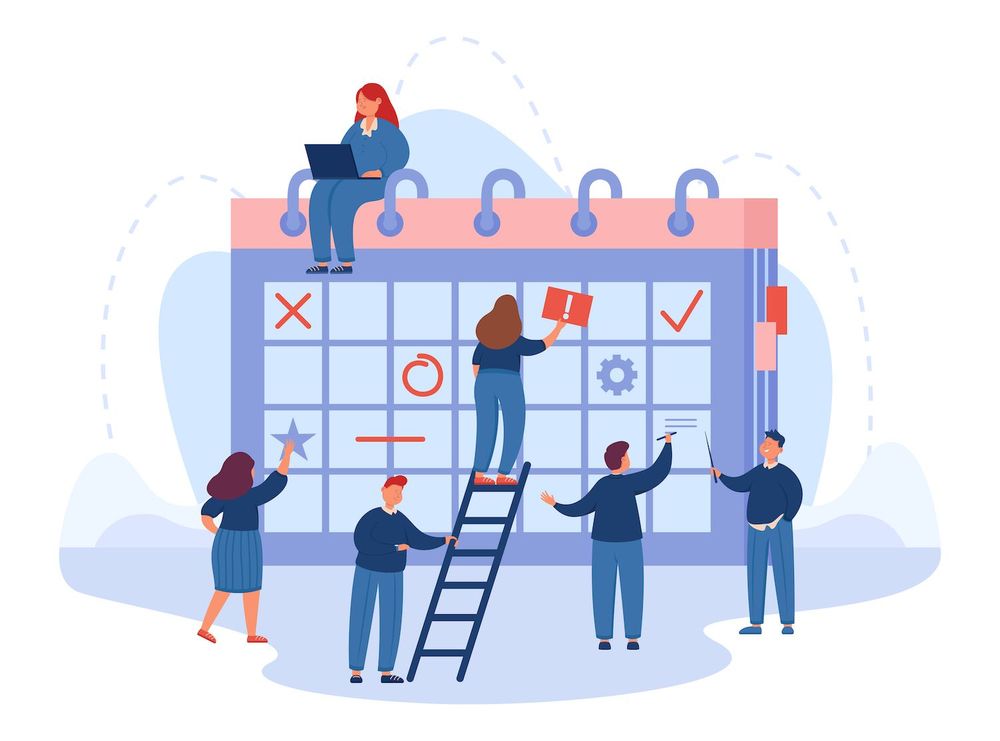Basics of accounting for e-commerce: Principles to Ensure a Profitable Store
Running an ecommerce business takes more than just great ideas and products, as well as marketing and inventory. It also requires an accounting system that can monitor the finances. What is your spending? What is your profit? Are you in line with the budget of your company? Do you have the approval of the government for your company? Ecommerce accounting follows well-known processes to keep track of company's financial transactions and records and keeping updated on taxes as well as payroll and profit.
No matter if you're only starting your ecommerce store or have been in business for a while, and are realizing that you require help in tracking your company's financials The accounting guides will help you get going in the right direction.
The eCommerce accounting software lets you judge the financial performance of your enterprise, and to make more precise financial projections when the business expands.
What's the Ecommerce Accounting process?
Companies that are built on e-commerce are built upon transaction and inventory. A company earns profits. You deliver items. You buy and replenish inventory. The basic principles of ecommerce accounting begin with the method of keeping track of the transactions you make and reporting them that include purchase orders and invoices, as well as taxes.
It's much greater than that. Accounting firms collect that information and make use of it when preparing books of accounts to analyze and present reports about the financial results of your business.Ecommerce companies also require special attention to meet their fundamental company model.

Imagine the scenario if you have an offer on your web shop. The customer will use their credit card for payment to your payment processor. How do you know that sale affects your finances?
- The payment processor you used to make the transaction received payment however, it's not on your account at the bank at this point.
- Sales tax is a cost which may come in a different area or state
- Inventory declines
- Credit card and payment processor fees are charged
- Actual income from the sale is not in line with the purchase price.
No matter the method of sale, this sale could affect several aspects of your financial record. Any repercussions of this event are most likely to appear in your records of financial transactions in the coming months. In the event that your order is to get rejected, the majority of transactions will need to be altered or reversed.
That's only one transaction.
Monitoring some of these is the job of a bookkeeper. we'll go over the difference between bookkeeping and accounting in E-commerce in a moment.
We'll discuss the basic accounting terminology.

Accounting basics
The most crucial words to be aware of in accounting
Transactions
The transaction can occur at any point cash is paid, received or requested by a vendor or business.
The word "transaction" can be used to refer to any of the above:
- A business's owner can invest money into the company
- Sales revenue
- Invoices
- The expenses include the cost of salaries along with travel, marketing as well as construction costs.
- Purchased assets, like automobiles, offices Materials, offices, etc.
An individual transaction could include multiple elements. If you pay an hourly employee like this, it is important to know the length of time they worked, their net wages and tax deductions, in addition to their earnings net. Software for accounting that is of the highest quality can handle all of the above requirements.
Transactions for ecommerce companies may become complicated because of specific elements, including delays with taxation or timing due to the rift between consumer and business.
For example, do you pay sales tax when you make a purchase? If so, what happens to this amount if the item is returned within a month?
The accounting of e-commerce tries to manage your processes and transactions in order to make sure that the issues mentioned are not affecting the financial performance for your company.

Credits and debits
All transactions are tracked through the process of credit and debit. Before we begin, let's clarify the terms that are most crucial:
Debit Record of the money that was debited from your bank account. You'll see debits show up on your account statement each whenever you buy something.
Credit Accounts for the total amount that was credited on your credit card.
Assets property (real or intellectual) held by an entity.
Lies are the obligations companies are required to fulfill but are not yet fulfilled. The term "liability" refers to a claim against the assets in the balance account.
Equity the sum of funds after the debits have been taken off of them.
We'll look at how these terms help to create the primary accounting equation
Capital is assets + liabilities (Owner's or the corporation's)
The debit is added to the left side of the equation to create an asset. Credits are added on the right.As one example, when you are making an offer of 500 dollars, that amount will be deducted from funds of your business. This is credited to Owner's Equity, in the form of income. When a debit is made, another item must be credit, as it aids to keep the balance.
That's a vastly simplified explanation. However, it provides a good understanding of what the accounting software does as you enter data.
Cost of the products offered for sale (COGS)
Accounting for e-commerce must pay special consideration to the costs of the items sold. The total amount is the cost of selling the product, but not counting things like payroll or marketing.
COGS includes all costs associated with inventory including purchasing and storing inventory as well as managing it and even shipping. Inventory is your largest expense when you're an e-commerce retailer and if you do not possess a precise accounting view regarding the expenses of goods that you sell, the margin of profits as well as the tax deductions you earn might not be correct.
A miscalculated COGS can make it harder to know what amount to put into marketing, as well as the price you must set, the amount of stock to purchase and whether or not you need to hire employees, and the quantity of warehouse space that you can acquire.
Profit margins
The margins represent the real earnings your business earns after the sale has been completed. Calculate margins with this equation:
Margin = (Revenue and the cost of goods) /Revenue
In essence, it's the net profit you earn in an amount. If you're able to sell a total of 10,000 items in a single week and your COGS for the items you sell are $3000, your margins would be 70 percent.

Repayables, accounts receivables and accounts payables.
"money" or "money" refers to cash that has not yet exchanged hands but is set to.
Receivables are the amount that's due on your account in the bank. For example, if you issue an invoice, it will be credited to your receivables until the recipient is able to pay the invoice.
Accounts payable works the same as accounts payable, however it's reversed. If your business makes purchases through vendors, when the vendor issues an order to the purchase, it is deposited into the account for accounts payable until the time you have to pay the vendor.
Bookkeeping for Ecommerce vs. accounting -- What's the distinction?
There's a bit of connection between bookkeeping and accounting. But in general, the difference is that bookkeepers handle the events while accountants collect and analyse the events to give a complete and useful overview of your business budget.
When a sporting analogy can assist you in understanding the job of bookkeepers. They are the announcers of play-by-play and accountants are like the analyst or color commentary. Bookkeepers record what happens. The accountant clarifies the reason of the event.
What exactly does an Ecommerce Bookkeeper do?
Bookkeeping tasks are usually focused on records, transactions as well as financial institutions. If you are a business with employees, your bookkeeper is responsible for payroll. Also, they do the following:
- Invoice processing
- Make receipts available for payment.
- Check what's in your bank account for business and out of your business bank account.
- Purchases of inventory records
- Make sure your accounts are consolidated each month
- Generate monthly financial statement
- Create year-end financial reports along with tax documentation
An accurate bookkeeping for your online business will allow you to build a robust and reliable business strategy.

What exactly does an accountant who specializes in e-commerce perform?
Ecommerce accountants will perform things similar to
- Monitor and evaluate operational costs along with business performance
- Conduct financial forecasting
- Review your financial statements- Include those that are provided by your bookkeeper
- Create a tax-planning strategy that includes claiming tax-deductible taxes
- Review the cash flow management
The objective of an accountant is to aid e-commerce company owners make more informed financial decisions.
Are you able to afford the cost of a new employee? Should you expand into a new state or country? What is the minimum amount you must be charging for your new product?
The most efficient form can solve these kinds of issues.
Methods of accounting for sellers selling e-commerce
There are two principal methods of accounting for online commerce either the cash method or accrual. The approach of accrual is more popular, and depending on the size and nature of your business, may be required by law.
The main difference between techniques is in the moment when the transaction is acknowledged.
Accounting on cash basis
In the cash basis accounting method, transactions are deemed to have occurred when actual money has exchanged hands. When you pay an invoice and the cash basis accounting classifies it as an expense. If you get an invoice from January but you pay it off in March, the cash accounting notes the payment as a cost in March.
In the same manner, income works. If you sell something when the client agrees to a payment plan that spreads out the payment over a period of four months. Cash accounting permits that you consider this to being income for each month as the cash comes in.
Accrual method of accounting
If accounting for accrual is used and accrual, the transactions are recognized once the job is finished and an invoice has been delivered. Suppose you place an order to purchase a brand new paper for office in January. It is then put on your company credit card. You receive the office paper in a matter of minutes, but don't actually pay for it until February. After that, the credit card balances come in.

In accounting with accrual, the transaction occurs when you receive the document. You should keep the receipt in your file system, and record the amount. The expense is for January, even though you won't purchase the item until February.
The same scenario applies for accrual accounting. Accounting for accruals will report the total purchase price as income at the time the transaction is concluded, even though it won't actually get the entire sum until after four months.
What accounting method is the best for businesses that operate in the field of E-commerce?
Accrual accounting gives you an easier understanding of the value of your goods throughout the month. If you buy paper in August, the paper that you bought was a one of the costs of running your business -it was in August and it was not until you were being able to pay for the paper. If you make a sale in the month of May, you've made the sale in May, not July until the client finally pays the bill.
It also works better in conjunction with managing inventory.
If you own the equivalent of $30,000 in inventory in September. It is then decided that you offer the inventory for sale over the following four months before Christmas time. If you are using cash accounting, you would mark the entire acquisition of inventory as an expense in September. If you are using accrual accounting, you'll label it as a expense when you sell the product.
In the cash-based approach, you'd be facing a major expenditure in September. This would be which would be followed by artificially high profit margins during the months of October, November and December, because it appears as if you don't have any expenses related to selling your product.
Accrual accounting helps you compare the business costs every month, and you will be aware of which months brought the most profit margins.
Three financial statements, which comprise the main ones
However, if you do decide to contract out your bookkeeping and accounting services, you'll have to know how to comprehend and understand your financial reports. If you're doing it by yourself, using an ecommerce software for bookkeeping to input transactions will allow in preparing the three crucial financial statements that include income statements (also known as the "profit and loss statement" (also known as P&L) and balance sheets, and cash flows.
Statement of income
An income statement will show the total amount of profits that were earned during the specified time period like one month. It is the profit that people are referring to in the context of "bottom line." The profit you earn is the sum of money you make. If you've made losses at the time, it's you'll have a net loss.
Balance sheet
The balance sheet lists your financial assets, liabilities and equity over a specific period of time, which generally occurs at the end of the month, quarter or even year. It's a snapshot of your financial position.
Assets are the things owned by the owner that have value. The term "accounts payable," also referred to as liabilities, are the things that you are obligated to pay.
If you look back at the accounting fundamentals that was discussed earlier, you'll see that equity is simply the sum of both assets and liabilities. If you eliminate liabilities, you'll get the "book value," or equity. Equity is the value of your business that you manage.
Statement of Cash Flow
The cash flow report provides information on how your cash changes over a certain interval of time.
Each of the three reports can be easily created by your accounting software, provided you've made sure to input your financial details. If you don't have enough time to do that, now is the perfect opportunity to get an e-commerce bookkeeper.

Most important financial metrics to use for eCommerce accounting
Taxjar published an amazing article about ecommerce accounting metrics. It's crucial to understand that accounting does not just have to do in keeping track of the financial transactions. Accounting also tells the story regarding the state of your finances and also the development, or decline, of your online business.
They are among the most crucial accounting measures:
Revenue
Revenue refers to the net receipts prior to any expense has been paid. The revenue can be quite simple to monitor. But by itself this gives an incomplete view.
Margin of contribution
The price of sale is in addition to the cost of selling the item. This is similar to the COGS number from earlier however, it is for every single item you offer. This figure does not consider operating costs.
Profit
Profit comes after you've eliminated all of your costs from your income, which includes marketing and operational expenses. If you're making a lot of revenue but the results aren't quite as good, it is either time to raise revenue or decrease costs.
Conversion rate for Ecommerce
The percentage is the number of people who shop at your store online and purchase something.
Cost of acquisition for the customer
It usually costs much less money to sell additional sales to your current clients as compared to finding an entirely new customer.
If your CPC is extremely high and you're not willing to halt any aspect or all of your efforts, you have two choices:
- There are many ways to enhance or improve your marketing
- Begin to market your business to more of your customers you already have.
Customer lifetime value
If you're a brand new eCommerce seller, you'll encounter difficulty in determining the right amount to start with for the initial years. With a reliable accounting program, you'll be in a position to estimate this as time goes on.
This is a good way to make sense of your marketing expenditures. Additionally, if you've got an impressive CAC but your customer's lifetime value is significantly more, it's still worthwhile to invest the cash to acquire these clients.
Average order value
Particularly for smaller e-commerce companies. It's a superior measurement over the lifetime value. If you are willing to pay $10 for a new customer but they'll be spending around $25 for an average order, that's a good deal as long as your other expenses aren't too expensive. If you can scale that up as you reach more customers, then you'll enjoy fun.
Cart abandonment rate
The percentage of shoppers who buy this is alarmingly high in the cases of online stores. Based on TaxJar's sources, about 70% of shoppers who shop online put products in carts but do not make purchases.
The most effective method for reducing the abandonment rate of your cart is to email abandon cart emails and automate the process by using an appropriate email service, for example, MailPoet.

If you could reduce the rate of abandonment for carts down to 50 or 60 percent this will result in significant revenue growth. It's all it takes is just a few automated emails then it's no problem.
The rates for refunds and return to the customer
Are there a large number of customers who have to return items for refunds? This is a sign that something's wrong. Be sure to keep an eye on the situation and do your best to keep it low.
Five important accounting considerations for eCommerce to tackle
If you're in the initial stages of becoming an online company owner, it is essential to master the basics of accounting in the near future to avoid having hot water in the future. In order to be precise, "hot water' can mean a lot of items, for instance:
- Taxes not paidsuch as sales tax, income tax taxes, state or local taxes
- Tax returns that are false
- The inappropriate use of inventories
- Employers you cannot manage to
- Insufficiently withdrawing equity
Below are a few ways that can help you get an online financial process off to a great start:
1. Create a bank account for business. account
Owners of smaller-sized companies in the ecommerce sector tend to ignore this because they're busy with many new business ventures.

But business accounting becomes very complicated when you mix the individual and the business. Business accounts are one that you utilize to fund your business expenditures and also the account which you'll receive your profits from sales.
In order to open a bank for business account, you'll need to have a Tax ID for your business.
2. Be prepared for your employees and contractors.
If you plan to have employees, you'll have create ways to withhold taxes. If you decide to run the business by yourself for the moment, you'll probably still employ contractors on certain projects. Contractors that are paid a greater amount each year in the U.S. must be sent a 1099, so be sure to:
- Track who you've paid and how much you've paid to them.
- You can get a W-9 form from each contractor
- Make sure you have current addresses in your file for each employee you employ.
3. Find the accounting software that you need.
If you expect to have thousands, or perhaps hundreds of transactions each month, then you'll require accounting software such as QuickBooks Online, Xero, or FreshBooks. Smaller companies can work with using the Excel spreadsheet, but an enterprise with a lot of transactions will not be able to keep up with manual entries.
The Ecommerce Accounting Software automates the vast majority of accounting chores and makes work easier. It records, stores, and retrieves data from financial records as well as produces financial reports and statements.

4. Keep all receipts, invoices as well as records of payment
The Reliability Principle of Accounting states that transactions supported by documentation should be recorded. If you don't have records of an activity and you aren't able to consider the amount as income or expense. If you tried to claim a tax deduction to cover an expense but that you don't have documentation for the amount you made payment to, this could be classified as tax fraud.
Make sure you keep receipts in a physical form. Or take photos of them and save the receipts in digital form. Save all receipts and invoices separately in a folder dedicated to emails, not just your email inbox.

5. Be aware of taxes and tax law
Tax regulations vary greatly based the type of company and the place within which it is located. It is important to keep track of tax requirements on sales, import tax for imports, and other taxes if you're engaged dealing with international transactions. Tax withholding taxes for each quarter, along with any other taxes that apply to your country the state, province or cities or regions.
Taxes will be integrated into your accounting software and financial statements. Always seek out a tax expert in order to make sure you're following right procedures.There's many more things to discuss the tax administration. There are two main tax concerns you'll need be aware of:
Taxes on sales and trackers
Sales taxes on online sales have turned out to be extremely complex. Actually, virtually every US state now charges an online sales tax as well as the EU is also home to an effective sale tax structure.
The U.S., each state has different tax rates and has different requirements for the manner in which sales tax is applied.
Business taxes are expected to be paid out quarterly
The pre-tax profits of a business are tax-free. Similar to a typical 1099 employee, the e-commerce company earns cash before tax has been paid on the income.
And like a 1099 employee, you need to pay quarterly income taxes. If you don't tax, the government could punish the taxpayer for not paying the tax bills.

What can you do about this? You want to prevent getting behind in your tax obligations. One of the most efficient ways to manage quarterly tax obligations is to set an amount of your income per month that will be used to cover taxes each quarter.
Accounting software will easily deal with all of this as well as the tax obligations in sales. And speaking of programs...
Why do you think your online business require accounting software
Consider taking the time to think about this, and make sure you know the benefits using programs that help to manage your accounting and e-commerce jobs.
As you've discovered, tax planning has been a major challenge in recent years, particularly when it comes to taxes on revenues and sales through various channels of sales. If you run an online store that sells products throughout the US or in a large number of states, it's not a good idea to manage everything on your own. You've got a business to run.
The program also takes care of your tax allocation for the quarter, which you'll need to pay taxes on your income and assist in the filing your tax year-end statements. If you're also being subject to local or state taxes, that complexity mounts to an even greater extent. A reputable accounting system can handle all of these requirements.

The second is that accounting software makes it much easier to keep track of your expenses and income by generating financial statements so you are aware of the amount of profit you earn each month and can see your business capital.
Third, accounting software helps control payrolls, which includes contractors. If you don't want to cover the cost of bookskeeping or accounting for your web-based business, it's a must have accounting software.
Should you hire bookkeepers and accountants, or do the work yourself?
If you're not using accounting software or choose to buy it however, you don't want to have responsibility for the software, then you'll need the services of a bookkeeper. When your business grows and expands, you'll need to consider some of the accounting firms available that understand the specifics of businesses that operate online.
Most people who own businesses that operate on the internet believe that they can manage their own business and even serve as Chief Financial Director. So long as their company is small, they might be able to succeed in this manner. But let's define "small."
When an e-commerce business is earning upwards of $100,000 or more each year in net income, that's already going to start getting way beyond control of the accounting system you use if you're selling products in many states or even nations. The sales taxes alone just make things too difficult.
Additionally, you must deal the return shipping process along with chargebacks, as well as other charges. Most ecommerce platforms sell lower-priced merchandise, and they operate in bulk. Except for the rare exclusion this means you'll encounter a variety of transactions.
The higher the volume of transactions, the more time it will take to manage the whole process. In addition, even the "small" online business that earns less than $100,000 of net income per year selling products that cost between $5 to $20 will experience many transactions.
If your business is offering its services in one area or a single state, province, or country, the degree of tax complexity will be lower. In this case it is possible to do the tax yourself should you wish to do the task.
You can test your preferred technique to determine what it does. It is possible to change your thinking in the near future.
Does accounting have a cover
Knows the obligations the business owner faces every day. Making transactions by hand and producing financial reports is difficult and tax planning may make you feel overwhelmed. Accounting is an integral part in running a business that is successful.
This post was posted on here
